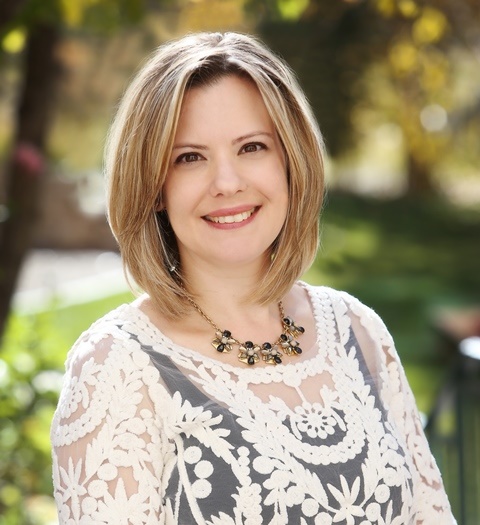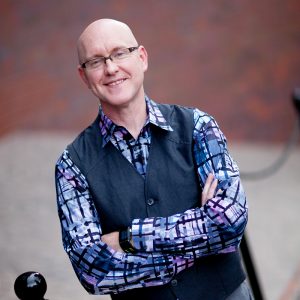Client Interview: Sara Reynolds
1/10/19 / Kevin Raines

As we complete our 20th year of business, we will visit with the two key elements of our work: our clients and our staff. We will start with someone who is both: Sara Reynolds, the Vice President of Operations of the Colorado Oil & Gas Association.
Sara, you’ve been both an employee of Corona Insights and a client. How has that happened?
I was Corona’s first employee after Kevin, maybe even before Karla, because she was just finishing up her career with Mercy Housing when I started. I worked at Corona for two years through graduate school, and then went on to other jobs. I hired them for research work when I was with the Colorado Municipal League, and then strategy consulting when I was at Housing Colorado.
How did you first become aware of Corona?
I talked to a career program person at CU-Denver when I started at the MPA [Master of Public Administration] school. They said that this company had called looking for help, and I asked if it was a paid internship. Fortunately, it was. Kevin had a lot of clients coming in and needed help, and I had SPSS experience, so it was a good match. I ended up working for both Kevin and Karla on projects. It was just the three of us.
We were certainly not an established company at the time, so we appreciated your open-mindedness about working for a little startup.
Yes, I remember getting hand-written paychecks. But I was finishing my grad program while I worked with you, so it was a mutual leap of faith to work at Corona. I was also working as a legislative aide and in school at the time, so we were all flexible. I worked in one of the bedrooms at your house while you were fixing it up. I also own an old house, so I understand the process, the renovations never end.
How did your career progress after you worked with us?
I stayed with Corona until I finished the MPA program, and then went to work for the City of Westminster. I wanted to be a city manager but later decided that it wasn’t what I wanted for that particular phase of my life. I then became the legislative liaison on behalf of the City to the Colorado Municipal League (CML), which led to a job there. I worked at CML for nine years, and then went to Housing Colorado as the executive director. I recently left that position and joined the Colorado Oil & Gas Association as the Vice President of Operations.
Are there any particular lessons that you took from Corona to your later positions?
From a research perspective, it was understanding the skill set that was needed for quality analysis. You can’t take for granted that what you’re receiving is actually good data. If you don’t start with good data, any analysis is worthless. We take for granted that all data is good, but with the rise of things like Survey Monkey, that’s not necessarily the case. It was good to start my career before that era, because we had to build good data from the ground up.
You also learn that organizations often feel like they have to use data to support their messages, but they don’t always recognize that you don’t have to just limit yourself to the data that’s available. My experience at Corona gave me confidence to go out and do my own research when I needed to.
On the facilitation side, I’m astonished at how many organizations don’t know how to plan strategically. Board members come from many different backgrounds. It’s hard to put board members through training, because they’re just too busy. You have to take people as they are, and that’s where a skilled facilitator can pull them together to train and lead them through the strategy process. It gives your executive director an opportunity to participate as well, rather than being the facilitator.
On the topic of collecting your own data, you told us that you have a particular memory of a project with us. Can you tell us what it is?
Yes, I particularly remember standing on a corner directly outside of Miss Kitty’s [adult store] on Colfax doing observations while we were studying seat belt use. [Kevin and I] eventually switched corners.
It makes for a funny cocktail story about what I’ve done for my jobs, but there was a bigger purpose. It was an intriguing contract from the Colorado Department of Transportation that was aimed at improving seat belt use rates among African American men. I then sat in on some focus groups that identified the stigmas of wearing a seat belt among young African American men. It was an early experiment in reaching niche markets. CDOT used the information to run a public information campaign that I’m sure saved lives.
So you’re the Vice President of Operations at the Colorado Oil & Gas Association (COGA) now. What intrigued you about that position?
I’ve gone from the public to the nonprofit to the private sector. I wanted to try something in a member-based organization that served the private sector, which was why I went to COGA. Our members are all private organizations, but addressing public issues.
There are beautiful recreation centers, senior centers, and other things that have been built with oil and gas [severance tax] money, and perceptions of the industry are different in different parts of the state. I’m familiar with corporate social responsibility and how private sector organizations can have positive impacts. My background in working with local governments gave me a good opportunity to be the bridge.
In this position, you also have to have a fluency in understanding the operational elements, such as finance and project management. In a trade association, you have to juggle many projects. Project management is on an annual cycle and getting people onto the team who have different skills. You then have to interface with your board on strategic vision, and also consider strategic partnerships.
And one of the more exciting elements of working at both Housing Colorado and at COGA is identifying the number of potential partners out there. You can’t do it all alone as a small organization. People tend to think internally first on strategy, so you have to help people think externally. Many organizations are funded by oil and gas to pursue their mission. When you look around, there’s a pretty big table of allies. You have to figure that out when you work at a small organization.
We’d like to close with a couple of Corona personality questions. If Corona Insights was an animal, what would it be?
A little bookworm comes to mind, from the Richard Scarry books. A caterpillar with glasses. It offers very observant commentary on issues.
And what three words or phrases best describe Corona?
First, I’d say hungry. Hungry for the next project. I can’t see you saying no. You’re always taking on unusual projects that seem odd but interesting.
Second, I’d say disciplined. Corona is disciplined and committed to taking people to the finish line.
Third, I’d say non-conforming. You built the business the way you wanted to and were intentionally nonconformist about your approach. We don’t value institutions the way we used to, so non-conforming is good. You can be nimble in how you operate.
That concludes our interview. You were a great first employee, Sara, and you’ve certainly been successful in your career since leaving Corona. We’re very grateful to have had you on our team, and we’re proud of your success!

Throughout 2019, to help celebrate our 20th Anniversary, we are profiling our staff and select clients. Click here to view all of our interviews.
To stay up to date on all Corona news, and receive useful insights in the world of research, evaluation, and strategy, subscribe to our newsletter.
